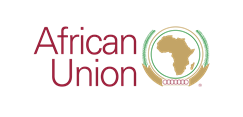AU theme of the year: “Educate an African fit for the 21st Century: Building Resilient Education Systems for Increased Access to Inclusive, Lifelong, Quality, and Relevant Learning in Africa”.
The achievement of Aspiration 1 of Agenda 2063 for “A prosperous Africa based on inclusive growth and sustainable development” requires that Africa makes significant investments in education with the aim of developing human and social capital through an education and skills revolution emphasizing innovation, science, and technology.
Even with a substantial increase in the number of African children with access to basic education, a large number still remain out of school. This reality calls for concern.
There are many barriers to education for low-income households. The issue was raised in 2022 at global level by the UNSG, Antonio Guterrres during a Summit on Transforming Education, amidst many other serious global issues. The Summit pointed out that education is serious crisis, and progress towards the attainment of Sustainable Development Goal 4 on education (SDG4), needs to be enhanced. That is why the UNSG wanted to impulse “a one-in-a-generation” opportunity to address this global education crisis by renewing collective commitment and joint action.
The AU, through its Continental Education Strategy for Africa (CESA), is vying to expand access not just to quality education, but also to education that is relevant to the needs of the continent given that the continent’s population is rapidly increasing. The CESA aims to reorient Africa’s education and training systems to meet the knowledge, competencies, skills, innovation, and creativity required to nurture African core values and promote sustainable development at the national, sub-regional and continental levels.
The key objectives of CESA are to:-
Revitalize the teaching profession to ensure quality and relevance at all levels.
Expand access to quality education by building, rehabilitating, and preserving education infrastructure and developing policies that ensure a permanent, healthy and conducive learning environment in all sub-sectors.
Harness the capacity of ICT to improve access, quality and management of education and training systems.
Ensure acquisition of requisite knowledge and skills as well as improved completion rates at all levels and groups through harmonization processes across all levels for national and regional integration.
Accelerate processes leading to gender parity and equity.
Launch comprehensive and effective literacy campaigns across the continent to eradicate illiteracy.
Strengthen the science and math curricula and disseminate scientific knowledge and the culture of science in the African society.
Expand TVET opportunities at both secondary and tertiary levels and strengthen linkages between the world of work and education and training systems.
Revitalize and expand tertiary education, research and innovation to address continental challenges and promote global competitiveness.
Promote peace education and conflict prevention and resolution at all levels of education and for all age groups.
Build and enhance capacity for data collection, management, analysis, communication, and improve the management of education system as well as the statistic tool, through capacity building for data collection, management, analysis, communication, and usage.
Set up a coalition of all education stakeholders to facilitate and support initiatives arising from the implementation of CESA.
It is worth recalling that, at the dawn of independence, incoming African leaders were quick to prioritize education on their development agendas as governments began to build schools and post teachers even to the farthest corners of the continent. Children began to fill the classrooms and basic education was under way. Attaining universal primary education, OAU Member States maintained, would help post-independence Africa lift itself out of abject poverty. Consequently, according to a statement by UNESCO which is tasked with coordinating international cooperation in education, science, culture and communication, Africa’s primary school enrolment rate is above 80% on average, with the continent recording some of the biggest increases in elementary school enrolment globally in the last few decades and more children in Africa are going to school than ever before.
Distributed by APO Group on behalf of African Union (AU).

